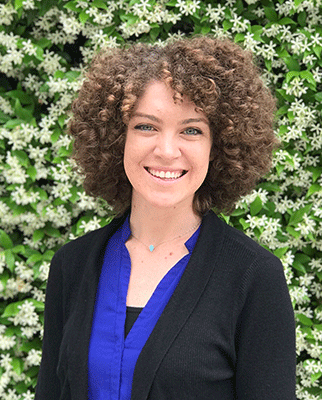NASA Awards Fellowship to Materials Science Grad Student
 June 20, 2018 - Samueli School graduate student Katherine Acord has won a 2018 NASA Space Technology Research Fellowship. Acord, a second-year doctoral student in materials science and engineering, will receive up to $75,000 per year for three years to cover tuition and fees, a stipend and other expenses.
June 20, 2018 - Samueli School graduate student Katherine Acord has won a 2018 NASA Space Technology Research Fellowship. Acord, a second-year doctoral student in materials science and engineering, will receive up to $75,000 per year for three years to cover tuition and fees, a stipend and other expenses.
Her research seeks to enhance the performance of solid electrolytes for rechargeable lithium ion batteries that can be used in space. The liquid electrolytes used in many rechargeable phone and vehicle batteries on Earth are flammable and not suited for space missions. But the solid electrolytes currently used by solid-state batteries charge at a much slower rate, limiting their efficacy and applicability.
Acord, whose research adviser is chemical engineering and materials science professor Julie Schoenung, will employ a 3D printing system, conventionally used to process metals, to enhance the performance of these solid electrolytes. She plans to develop a computer simulation tool that predicts and optimizes the internal structure of these 3D-printed electrolytes to enhance their performance by increasing ionic conductivity – the movement of electrically charged atoms through the solid electrolyte. “3D printing lithium ion batteries has the potential to reduce material waste and increase production efficiency, all while making the process environmentally friendlier than current production methods,” Acord says.
As part of the NASA fellowship program, Acord will spend 10 weeks at an as-yet-undetermined NASA Center, where she will have access to experts in the field and equipment that might otherwise be unavailable.
Acord says she was shocked upon learning she had won the prestigious award. “I had to reread the letter a few times before I finally was able to comprehend what was happening,” she admits. “This opportunity is a great stepping stone toward the accomplishment of my research goals in regard to developing and improving materials for extreme environments.”
She adds: “None of this would have been possible without the guidance of my adviser, Professor Julie Schoenung, and the support of my colleagues, my family and my friends. I am so grateful to them.”
- Anna Lynn Spitzer
